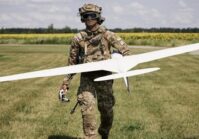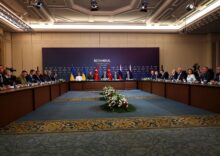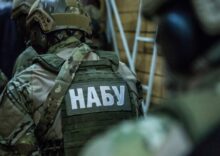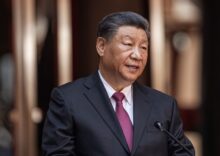Ignore the Headlines: Momentum is Moving in Ukraine’s Direction, not Russia’s
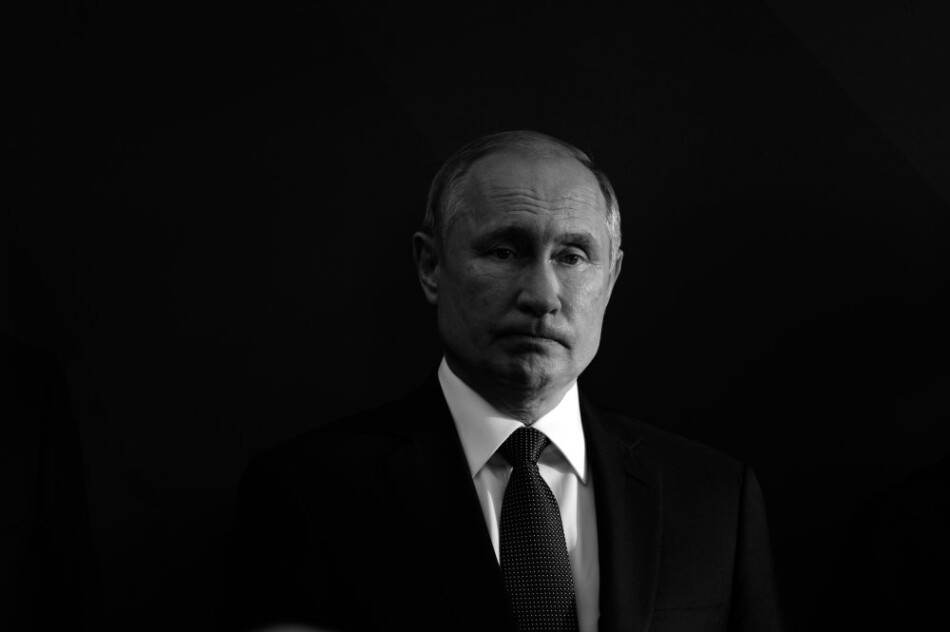

For all the talk of the Kremlin’s rising confidence since late 2023, the reality is in fact far from encouraging for Russia. Rather oddly, a nation mired in a foreign war it cannot easily extricate itself from – while wasting enormous resources and unable to achieve its goals – is somehow congratulating itself (with the aid of short-sighted Western media) primarily because its far smaller adversary was unable to win the war in its first large counteroffensive. In only the most narrow and short-sighted sense can we say Russia is “winning” the war as of January 2024.
Even perhaps more strangely, the popular portrayal of the war as having reached a “stalemate” – an inaccurate descriptor for a variety of reasons – is perceived as a defeat for Ukraine and a pending victory for Russia. Would a stalemate have been equated with winning for the invading nation in the other ultimately failed invasions of the past several decades? Whether the US in Iraq, Afghanistan, or Vietnam or the Soviet Union in Afghanistan, at no point during these wars would these administrations have claimed that a “stalemate” was equivalent to “winning”, especially after all the lost blood and resources while still far from their publicly-claimed maximalist war aims.
More accurately, the truth is the opposite: the momentum in fact looks set to turn for Ukraine in fundamental ways. This will be evident in Western support and sanctions, on the battlefield, in the air war, and within Russia’s economy and political life itself.
First and foremost, critical Western funding is coming, albeit delayed and after having sent an unfortunate signal to the Kremlin. While EU money is a near certainty by February, US support is still highly likely and perhaps will even be confirmed in January. Beyond the tactical political machinations involved, at the strategic level Western governments increasingly understand the risk to the entire Western order should they voluntarily and unnecessarily allow Ukraine to lose and Russia to win. Taking a step back, Western societies and governments are still only slowly recognizing and adjusting their mindsets to the fact that Putin’s invasion on February 24, 2022 violently slammed the door shut on the previous US-led order since the end of the Cold War. This transition into the burgeoning new global era, in which – unlike in 1989 – it is far from certain that the Western order and hegemony will persist, is centered on Ukraine. Putin laid down the gauntlet, and the West has no other choice but to resist and defeat Russia.
Increasingly the rhetoric out of Western capitals has gravitated towards finding a path to a ceasefire, but doing so while negotiating from a position of strength. Particularly for a Republican Party still supposedly in adoration of their Cold War warrior god Ronald Reagan, there could be no greater hypocrisy, abrogation of responsibility, and betrayal of his legacy than to wilfully attempt to seek “peace through weakness”. To that end, beyond providing adequate funding to Ukraine for at least 2024, the West must involve numerous other points of leverage to strengthen their position.
Several critical moves in this direction have taken place in recent weeks, although they have flown under the radar in some quarters of the excessively self-loathing Western media. Far greater progress is visible in confiscating Russia’s ~US$350 billion foreign exchange reserves, with the legal roadblocks less able to stop the accelerating political will. While perhaps delayed by a hesitant Belgium (where most the assets are held) and its EC presidency in the first half of the year, the momentum is clearly building and – in part – ironically inspired by the very war fatigue of Western taxpayers and their representatives in government. Simply put, it has to happen: there is no other realistic path to financially supporting Ukraine for the long term. Meanwhile, the costs of a Russian victory in the war – and the resulting undermining of the global rules-based order, Western system, and its core institutions (EU, NATO, among others) – far outweigh the costs posed by the theoretically possible damage done to the credibility of the dollar and euro, given the threat of reserve confiscation.
Meanwhile, some of the most severe financial sanctions were implemented in late December by the Biden administration. They have already had a perceptible impact. In tightening existing financial sanctions by placing secondary sanctions on foreign banks transacting with Russia’s financial system, these new measures have caused major Turkish and Chinese banks – the primary facilitators of trade with Russia and source of key defense manufacturing components – to begin refusing to work with Russian financial institutions. Over time this will cause shortages of critical components and further fuel inflation. Likewise, “phase two” of the price cap on Russian oil was implemented in late 2023, tightening restrictions on firms shipping the oil, which has already raised the discount on the oil Russia sells compared to market prices from $13 to $20 per barrel. This marks quite an appreciable impact given the moderated global Brent oil prices in H2 2023 and downgraded forecasts for Brent oil this year (to average ~$80), while the 2024 Russian budget is based on a price of $70 for the oil its sells (though Russia is receiving closer to $60 currently).
Looking to the battlefield, we see that recent developments are shifting the balance in favor of Ukraine. Fully capitalizing on Kyiv’s secret weapon (i.e., the obdurate military strategy of the Kremlin), Ukraine has been eliminating 25-30,000 Russian soldiers each month since October, while giving up miniscule amounts of land. And Russia’s losses are set to continue given the politically motivated nature of these assaults in advance of the March presidential elections. Though reportedly able to replace up to 25,000 soldiers per month, this situation cannot persist indefinitely. Yes, Russia has a massive population of 145 million people, but only a small portion of that is in fact politically accessible and also able to be summoned, transported, fed, clothed, housed, trained, and equipped at any given point in time without doing existential damage to the economy, society, and the regime.
Unlike the far more obstinate style of Russia’s military strategy, the Ukrainian leadership has recognized some of its strategic shortcomings and is therefore reacting more appropriately, improving Ukraine’s position in the war over time. In particular, in the past month Zelenskiy has publicly supported moving to a more defensive strategy this year, defined by reconstituting Ukraine’s forces, mobilizing more manpower, limiting offensives to preserve men and ammunition, and constructing its own Surovikin line of defensive fortifications along the existing front. Such a strategy would preserve Ukraine’s fighting capability for the long term while revealing to Putin that his losses will continue with no prospect of advances.
Add in the arrival of F-16 jets, the provision of more French SCALP missiles, expected eventual delivery of Germany’s Taurus missiles (despite the recent failed vote in the Bundestag), the recent downing of several Russian aircraft, the sinking of Russia’s landing ship in the Black Sea, and Russia’s inability to exact notable damage to Ukraine’s economy and energy sector amid the intensification of winter air raids, and it is evident that core aspects of the war are moving in Ukraine’s direction. Ukraine’s defensive strategy – with continued air assaults on Crimea and in Russia itself – will demonstrate to the Kremlin that there is no prospect for victory as still defined by Putin (i.e., seizure of more territory, removal of Zelenskiy, and the installation of a pro-Russian regime). Matched with Russia’s inability to outlast the West in Ukraine given the coming financial support and seizure of fx reserves, and ramped up Western artillery production come 2025, giving Ukraine a permanent advantage, and it is evident that in this war of attrition Russia’s highest point of confidence has already passed.
Meanwhile, off the battlefield, financial, economic, and political pressures are rising notably in Moscow. Put simply, the situation cannot persist indefinitely: Russia is going to have some level of economic crisis after its elections this year. The government has created too many conflicting policies that must be dealt with in time, though with no solution available as long as the war persists. For now, stop-gap measures (e.g. capital and export controls) and severely hiked interest rates (to 16%) have helped Russia avoid pre-election economic problems of ruble weakness and inflation emanating from the high imports required for defense manufacturing. Meanwhile, the ongoing mobilization (and perhaps a more formal one after March elections) is creating labor shortages and exacerbating wage costs for businesses, lowering investment and growth while sustaining inflation for the long-run.
Thus, policy trade-offs will have to be made after the elections. Ultimately, Moscow is likely to choose a middle ground: remove some capital controls while maintaining high interest rates across 2024 to limit inflation and ruble depreciation, despite the deleterious impact on private investment and growth. But the issues will remain unresolved and will only worsen over time. And there will be a political impact. Putin’s regime will only further anger and alienate certain elite factions with its response to these conflicting policies after the March elections, all while suffering multiplying losses in a demonstrably unwinnable and endless war, fomenting greater pressure on the Kremlin. None of these factors – whether political, economic, financial, or military – can improve for Russia over time; rather, they will all inevitably deteriorate, the only question being at what pace.
To be sure, none of this is to say Russia is necessarily “losing” at the moment. Nor to say that Ukraine is not facing numerous serious challenges. But believing Russia is winning and that 2024 will be a landmark year for Putin and his war machine following their regained confidence in late 2023 is highly misplaced. Expect the tide to turn and for 2024 to be far more favorable to Ukraine than popular moods suggest.
Author: Mark McNamee


